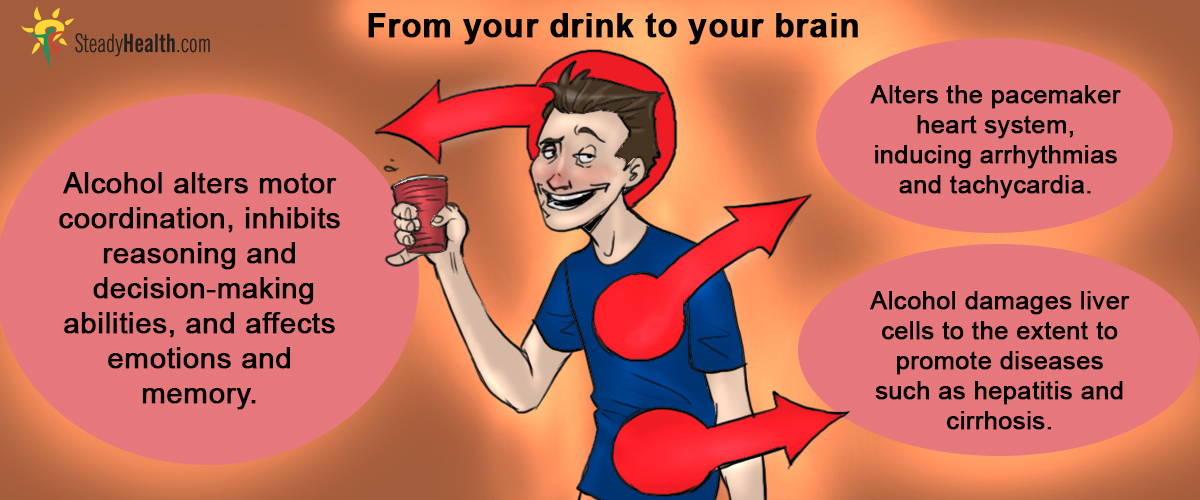Table of Contents
When alcohol gets into your system, it is immediately decomposed in several substances, in the stomach and the liver. These substances then reach the bloodstream and other organs too, including the brain.
Instant effects of alcohol
Why does alcohol make you lose your senses? In first instance, when an alcoholic beverage reaches your stomach, the alcohol in it goes through several chemical changes, thanks to the action of certain proteins that are present in the gastric tract and the liver. These proteins are known as enzymes, and what they do is that they chemically modify alcohol, transforming it into different substances.
After the first transformation, ethanol turns into acetaldehyde, a chemical substance that is then transformed in acetate, in the liver.
Acetaldehyde is the one to blame for the silly behaviors, the excessive laughter, the anger and even the crying, or whichever feelings alcohol gets out of you.
Your genes determine your alcohol tolerance
More than 90% of the alcohol you consume in one go is eliminated through urine. This is not a fixed number, though, since it has been seen that alcohol elimination depends on the person’s genes. Are you one of those people that can drink all night and barely feel anything? Or one of those that with just a sip of gin and tonic starts feeling dizzy?
Asians for example, have a slightly different enzyme that transforms ethanol into aldehyde, compared to the enzyme that Europeans, African or Latin Americans have. This difference reduces tolerance to alcohol in people with Asian descent and causes more intense hangover symptoms.
Alcohol effects have been widely studied by scientists, but they still don’t know with certainty how this toxic substance reaches the brain, crosses the barrier that protects it and alters behaviour. The main hypothesis is that one of the products of the ethanol decomposition, which is acetaldehyde, is the one that causes the so known alcohol intoxication effects on the brain.
Alcoholic brain
Acetaldehyde travels up to the brain by binding to certain substances that are present in the blood. When reaching the brain, acetaldehyde targets specific brain areas, including the cerebellum, the frontal cortex, the limbic system and other areas.
The cerebellum regulates motor coordination.
The cerebral cortex, which is the outermost region of the brain, is also affected when you drink those sweet delicious Cosmos. This brain region is the one that is in charge of the thinking and rationalization abilities. When it gets disturbed, it switches off and then the person loses control of his or her behavior.
See Also: Worst Complications Of Alcohol Abuse
If you have phoned your ex- under alcohol effects, this is the reason why. When the cortex is no longer functioning properly, you cannot longer make wise decisions and your behavior is based mainly on instinct.
- QUERTEMONT, E. 2004. Genetic polymorphism in ethanol metabolism: acetaldehyde contribution to alcohol abuse and alcoholism. Mol Psychiatry, 9, 570-81.
- Mindmap by steadyhealth.com
- Photo courtesy of Daniel M. Hendricks by Flickr : www.flickr.com/photos/hendricksphotos/2856523035



Your thoughts on this